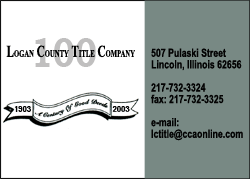| ||||||||||
| ||||||||||
In a statement released through his company, the son said the account had nothing to do with his father and that he would cooperate with any government investigations. The Supreme Prosecutors' Office has declined to comment on whether it's looking into a link between Chun Doo-hwan and the offshore company. The proposed bills in the National Assembly would extend the statute of limitations to 10 years, instead of the current three years, every time an asset is paid or confiscated. They also would allow authorities to collect from Chun's family members if he can't pay. The ruling Saenuri party agrees on the need to collect from Chun, but expresses worry that the bills would unconstitutionally override the statute of limitations set up when Chun was convicted, and also would make family members guilty just because of their association with him. Ahn Chang-nam, a tax professor at Kangnam University in South Korea, said proving a connection between Chun's slush funds and his family's money is a daunting task because evidence could have been manipulated or destroyed while Chun was in power. Details about the slush fund are unclear. Chun's former chief bodyguard testified in 1996 that Chun gave Roh Tae-woo, his friend from the military and successor as president, $230 million in cash to help finance his 1987 presidential campaign. Roh was later sentenced to 22 1/2 years in prison and ordered to pay back 260 billion won ($225 million) he had received as bribes from businessmen. The 80-year-old, who was pardoned along with Chun, has paid back more than 90 percent of the money, and most of the assets that would account for the outstanding balance have been discovered. Earlier this month, President Park Geun-hye, a conservative who took office in February, criticized past governments for failing to collect entirely from Chun and Roh and said she was trying to resolve the matter.
But the opposition has raised past links between Chun and Park, who acknowledged during a presidential debate last year that she had received about 600 million won ($516,000) from Chun following the 1979 assassination of her father, President Park Chung-hee, who ruled South Korea for 18 years after he seized power in a 1961 coup. Park Geun-hye said she was told at the time that receiving the money wouldn't be a problem. Although the timing is unclear, Park plans to return the money, according to the presidential Blue House. The money reportedly came from a secret coffer of her father's. Kim Sung-joo, a political science professor at Seoul's Sungkyunkwan University, expressed skepticism that all Chun's money would be collected, saying senior officials who once served Chun still hold sway today and will be reluctant to press the matter because of the special benefits they received. "Without closing this chapter on Chun and his slush money, South Korea can't establish a sense of social justice that future generations can be proud of," Kim said.

[Associated
Press;
Copyright 2013 The Associated
Press. All rights reserved. This material may not be published,
broadcast, rewritten or redistributed.

News | Sports | Business | Rural Review | Teaching & Learning | Home and Family | Tourism | Obituaries
Community |
Perspectives
|
Law & Courts |
Leisure Time
|
Spiritual Life |
Health & Fitness |
Teen Scene
Calendar
|
Letters to the Editor